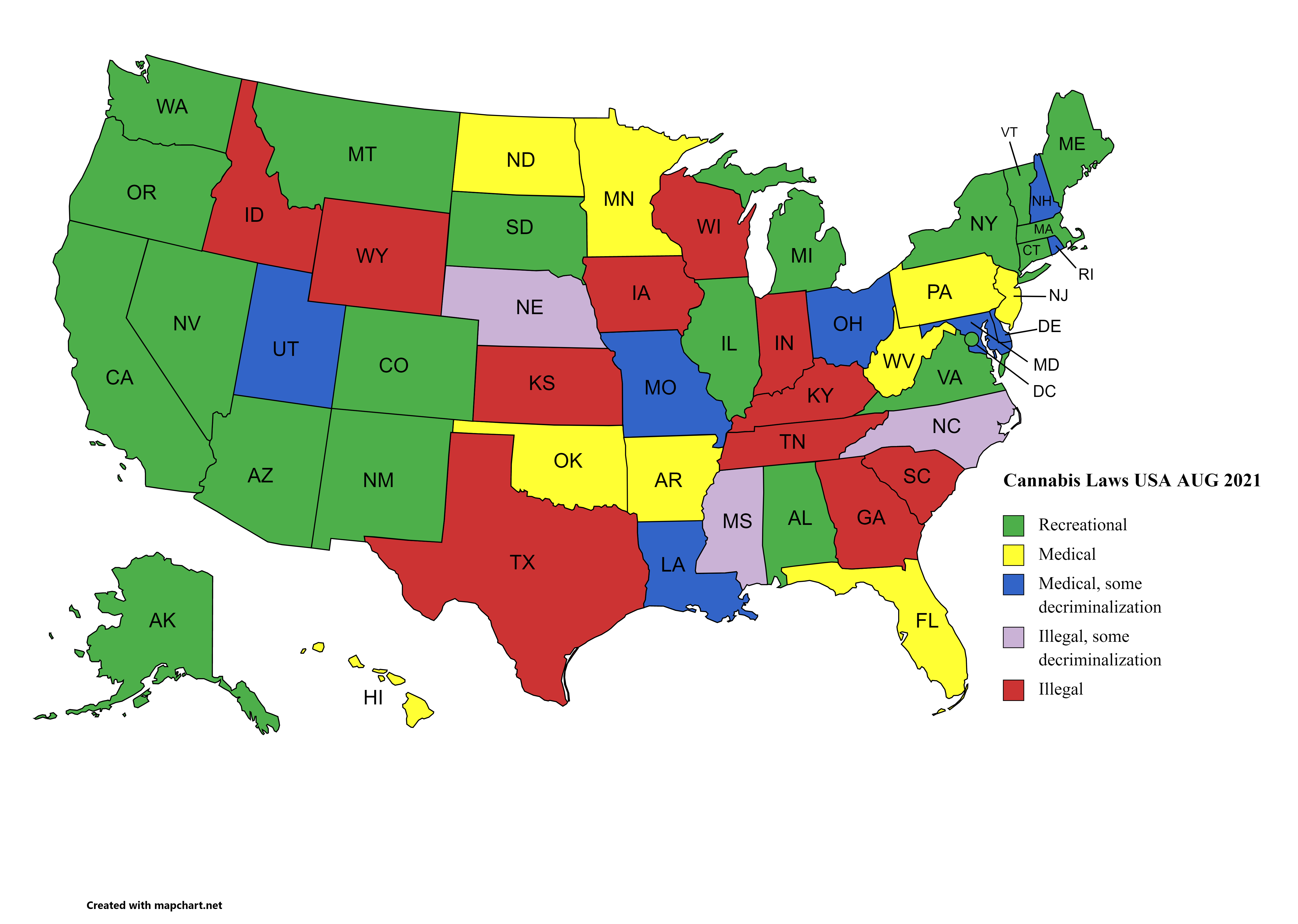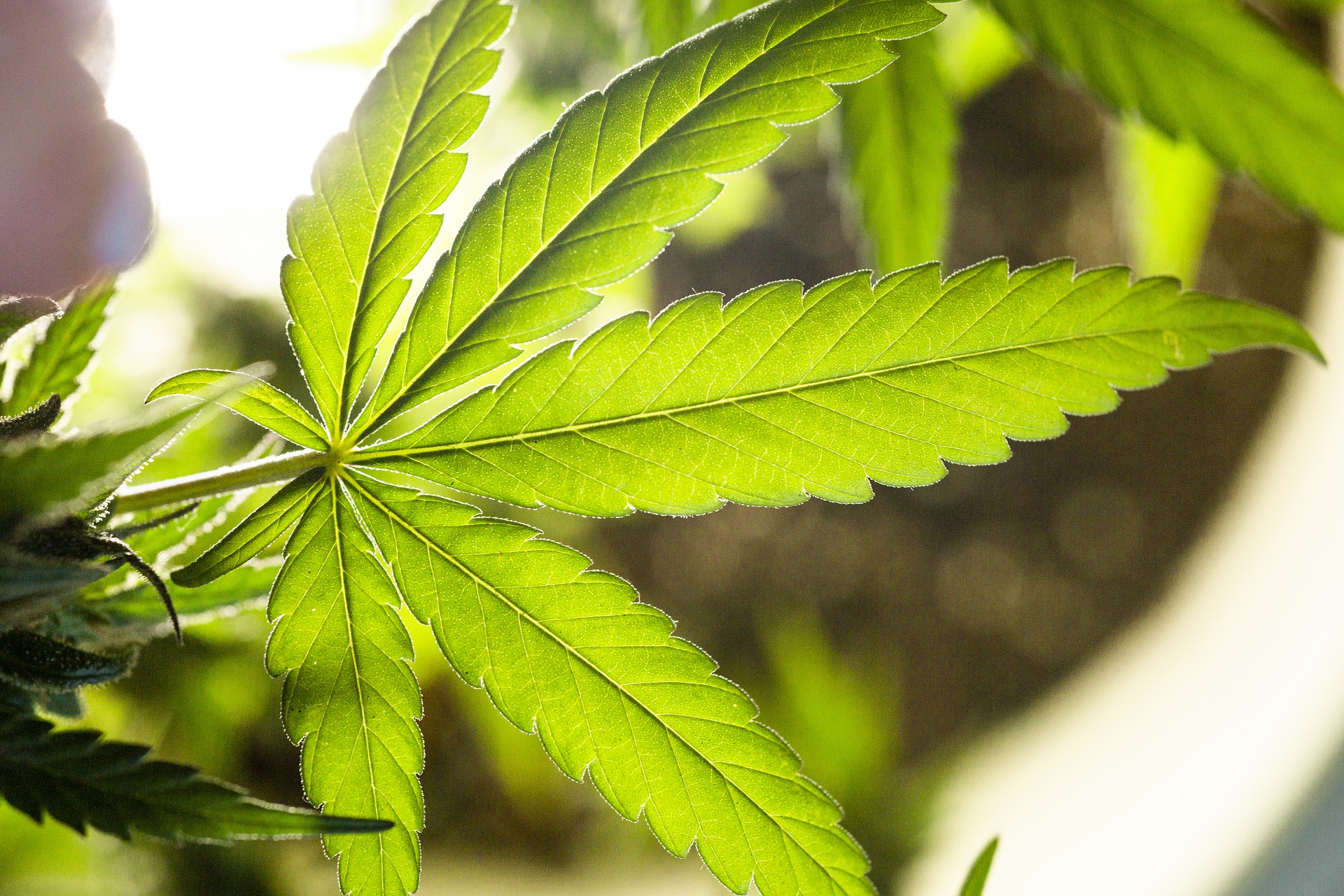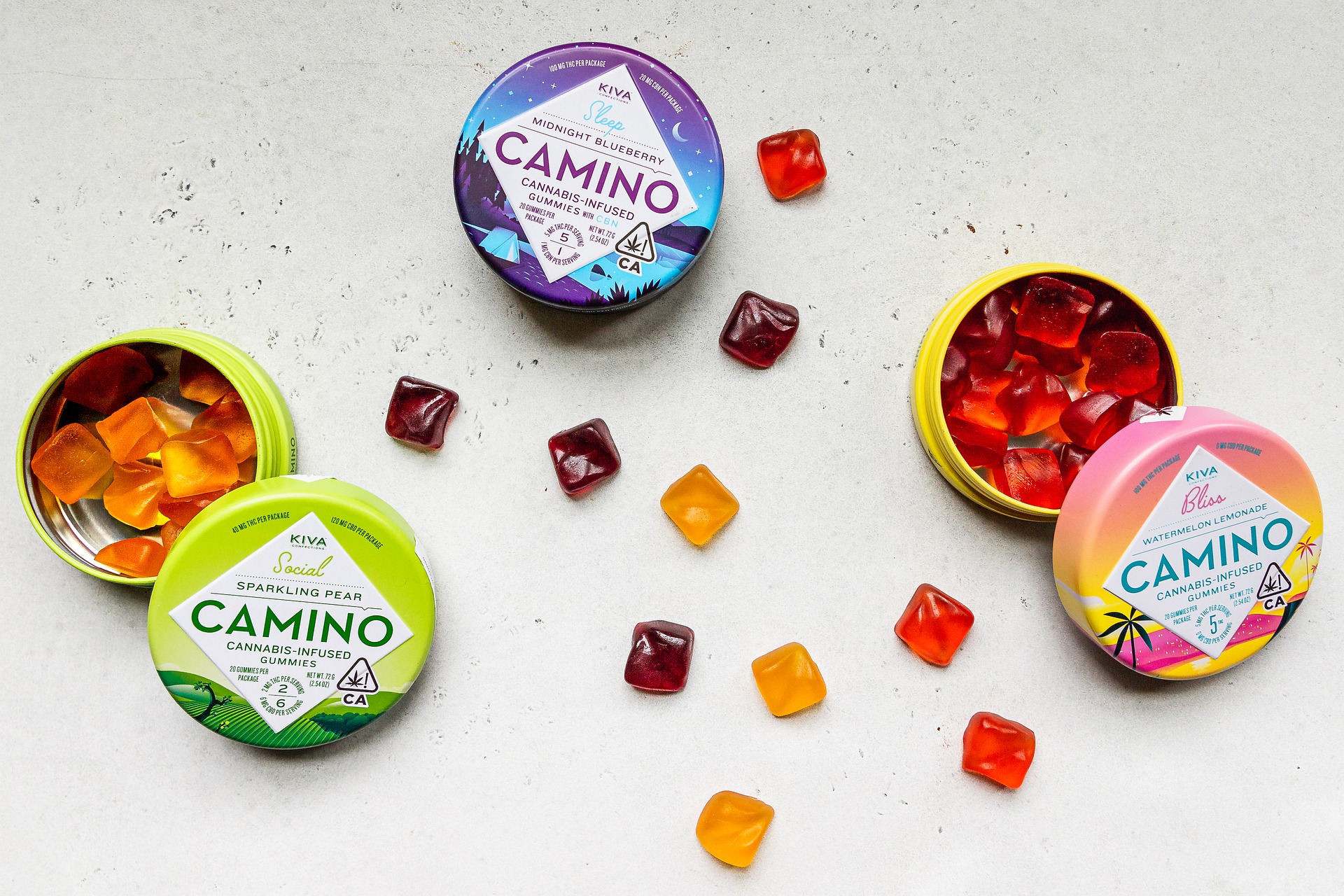Cannabis. Marijuana. Pot. Grass. Weed.
Call it what you will, recreational legalization of the herb keeps gaining traction in American society and the halls of power.
For example, a late 2020 Gallup Poll indicated that almost 68% of people in the US support marijuana’s legitimacy for recreational use, a rise of well over 30% in the two decades since 2000.
A change in societal attitudes, economic impetus from a booming market and taxation windfalls, scientific development of medicinal benefits, and a lessening of strain on court systems, have all been cited for marijuana’s move towards widespread acceptance.

The issue of legality refers mostly to cannabis that contains Tetrahydrocannabinol (THC), the compound that gives marijuana the ability to get you high when smoked, ingested, or absorbed. CBD oil, a popular cannabis derivative, contains no THC and is more widely available as a tincture for pain and anxiety reduction.
After first being introduced for medical purposes in California in 1996, it would take 16 years until two more states, Colorado and Washington, would legalize cannabis for recreational use in 2012.
In 2018, Vermont became the first state to introduce legal recreational pot use through legislation. Other states that had given marijuana the green light up to that point had achieved legitimacy through the ballot box.
With votes to legalize recreational cannabis in Connecticut, New Mexico, and Virginia, all passing after recent elections, the number of states where weed has been approved for recreational use currently sits at 19, as well as Washington DC and Guam.

Marijuana remains completely illegal in 14 states, while the rest sit somewhere in between, with levels of decriminalization (a reduction in penalties for possession or growing plants) and approval for medical use at differing levels across other state jurisdictions.
State legislatures are considering legalizing pot, although opponents cite that it is immoral, contributes to crime, or is considered a public health risk by some.
Cannabis remains illegal at the federal level, classified as a Schedule I drug under the Controlled Substances Act. Significant work is being undertaken to get the classification changed, so that marijuana isn’t treated the same as drugs of dependence and abuse, such as heroin and cocaine.
Marijuana-related bills – that include a federal decriminalization request- have been introduced in Congress.

US States (and territories) where recreational cannabis use is legal:
- Alaska
- Arizona
- California
- Colorado
- Connecticut
- Guam
- Illinois
- Maine
- Massachusetts
- Michigan
- Montana
- New Jersey
- New Mexico
- New York
- Nevada
- Oregon
- South Dakota
- Vermont
- Virginia
- Washington
- Washington, D.C.













